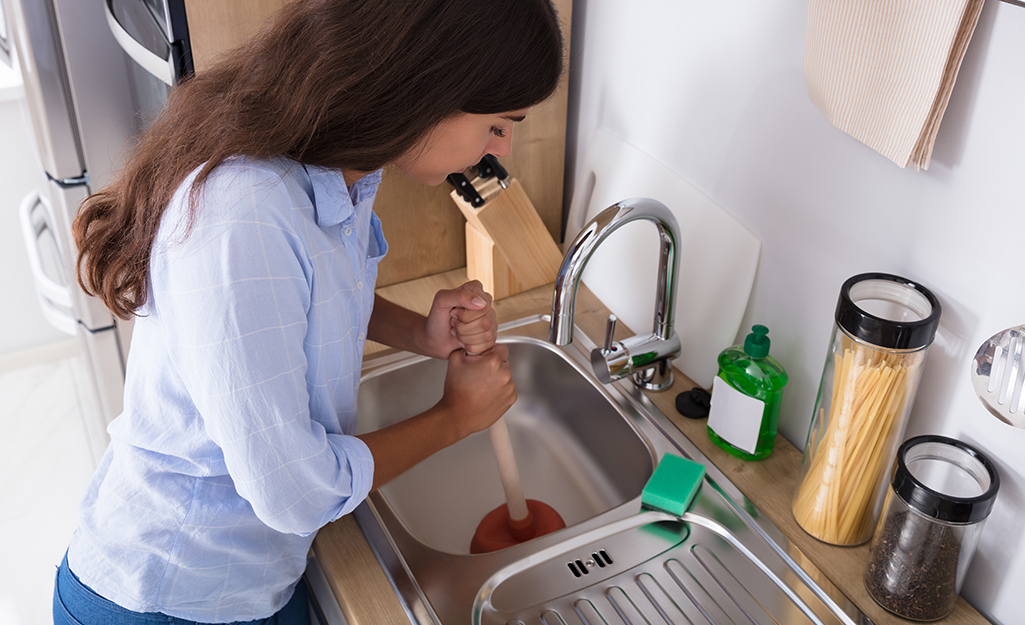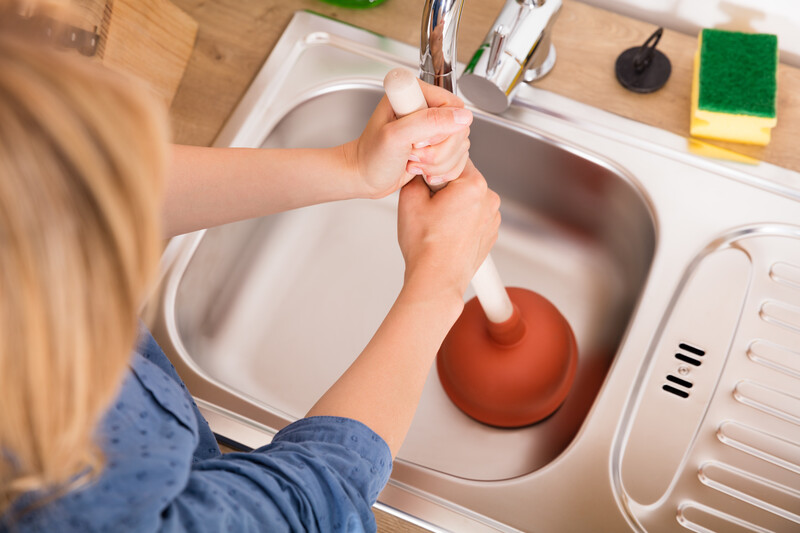Reliable Tips For Resolving A Slow-Draining Sink
Reliable Tips For Resolving A Slow-Draining Sink
Blog Article
Have you been trying to find related information on Three Common Ways to Fix a Slow Drain?

Intro
We have actually all existed: You're cleaning your teeth or washing your hands, and you see the water merging in the sink. As opposed to swiftly swirling down the tubes, it remains, turning your once-refreshing morning routine into a mini overload scene. A slow-draining sink isn't simply bothersome; it's commonly an indication of bigger plumbing issues lurking under the surface area. The bright side is that the majority of slow-draining sinks can be fixed with a little knowledge, a few standard tools, and some persistence. Prepared to tackle this project head-on? Let's roll up our sleeves and dive right in.
Comprehending the Sources Of a Slow-Draining Sink
Prior to you begin poking around in your pipes, it assists to know what could be creating the slowdown. Understanding the source makes it much easier to select the appropriate solution.
Tools and Products You'll Need
The right devices make all the difference. Thankfully, you will not require a completely equipped plumbing professional's van to get the job done.
Step-by-Step Guide to Fixing a Slow-Draining Sink
Now, allow's get involved in the nitty-gritty. This step-by-step process will guide you via easy strategies to restore your sink's drain.
Action 1: Remove and Clean the Stopper
Frequently, the stopper (that little plug you lower to obstruct water) is the first perpetrator. Remove it carefully and clean off any type of hair or substance entraped around its base. Wash it thoroughly before placing it back in position.
Action 2: Make Use Of a Bettor to Remove Particles
Got that bettor all set? Placement it over the drainpipe and offer it a couple of firm pumps. The idea is to produce suction that can loosen any type of blockage. If you see littles debris drifting up, you're on the right track.
Action 3: Try a Drain Snake or Cord Hanger
If the plunger does not work, it's time to draw out the drainpipe serpent. Delicately feed it right into the drain and twist as you go. You might feel some resistance-- that's likely the obstruction. Maintain twisting and drawing until you eliminate the blockage. If you don't have a drainpipe snake, a straightened out cable hanger can work in a pinch.
Tip 4: Apply a Do It Yourself Drain Cleaner
A natural cleaner made from cooking soft drink and vinegar can break down residual gunk. Put half a cup of baking soft drink right into the drain, followed by half a cup of vinegar. Let it fizz for around 15 mins, after that flush with hot water. This chain reaction typically does wonders for small clogs.
Step 5: Reconstruct and Examine the Sink
Placed whatever back together and run the tap. Does the water currently swirl down the tubes at a reputable speed? If yes, give yourself a pat on the back. If not, do not despair-- there are still a few even more dress up your sleeve.
Vital Tools for Do It Yourself Fixes
A bettor is your go-to beginning factor. A little, sink-sized plunger produces suction that can dislodge small blockages. For more relentless obstructions, a drain snake (occasionally called a plumbing professional's auger) works marvels. A set of gloves, a flashlight, and maybe a pair of safety safety glasses are additionally useful.
Advised Cleansing Solutions
Mild recipe soap and hot water can assist break down oily build-up. A combination of cooking soft drink and vinegar is a tried and true natural remedy, and enzymatic cleansers offer an even more environmentally friendly strategy. Keep chemical drainpipe cleaners as a last resource, as they can be severe on your pipelines.
Usual Offenders Behind Slow Drain
So, what's blocking points up? Generally, it's a mix of daily debris-- think hair, soap scum, tooth paste residue, and leftover food particles. With time, these little bits collect and cling to the pipe walls, progressively tightening the passage and making it harder for water to pass through. In many cases, mineral deposits from hard water can additionally contribute to the gunk, creating the best storm for persistent clogs.
When is it Time to Do Something About It?
If you discover the water draining pipes slower than typical, it's an excellent idea to interfere quicker rather than later on. Waiting also long could lead to finish obstructions, unpleasant odors, and even pipeline damages. If the water takes more than a couple of secs to remove after shutting off the faucet, consider it a warning and prepare yourself to place on your do it yourself hat.
Safety First: Safety Measures and Preparations
Before you launch into unclogging mode, think about safety. You're taking care of potentially filthy water and particles, so slip on a set of handwear covers. If you're making use of chemical cleansers, make sure the space is well-ventilated and adhere to the guidelines on the label.
Safety Gear and Workspace Arrangement
Lay down some old towels or cloths around the sink location to capture dashes. Remove any kind of things that may get in your way, like soap dispensers or tooth brush owners. Make certain you have excellent lighting-- order a flashlight if required.
Alternative Techniques for Stubborn Clogs
Not all obstructions are developed equal. If your sink still rejects to comply, consider these alternative remedies.
Sodium Bicarbonate and Vinegar Technique
We already discussed this, yet it's worth noting once more. This gentle, green method is much safer than chemical cleansers and frequently rather efficient.
Chemical Drainpipe Cleaners
Enzyme-based cleaners utilize natural germs to digest organic matter. They're an outstanding choice if you're wanting to avoid harsh chemicals. Simply bear in mind, they may take a bit longer to function their magic.
Chemical Drainpipe Cleaners: Advantages And Disadvantages
Chemical cleaners can blast via tough blockages fast, but they're not without downsides. They can create heat and fumes, damage pipelines if used exceedingly, and present environmental dangers. Utilize them sparingly, and always comply with the instructions very carefully.
Safety Nets to Keep Your Sink Flowing
Prevention is the most effective cure. By adopting a few basic behaviors, you can maintain your sink from slowing down in the first place.
Routine Cleaning Practices
Wipe down the sink basin and fixture area consistently. Get rid of hair or food fragments prior to they have an opportunity to wash down the drainpipe.
Staying Clear Of Dangerous Substances Down The Tubes
Think twice prior to discarding coffee premises, grease, or coarse vegetable scraps down the sink. These culprits hold on to pipe walls, creating clogs gradually.
Routine Upkeep Checks
Arrange a fast month-to-month evaluation. Run hot water via the sink for a few minutes, paying attention to the flow. If it appears slow, act fast prior to it ends up being a full-blown obstruction.
When to Call an Expert Plumber
Occasionally, regardless of just how tough you try, that block simply won't budge. That's when it's time to generate the pros.
Indicators That Suggest an Extra Major Problem
If your sink drains pipes gradually despite multiple efforts, or if you see water backing up in other fixtures (like your shower or toilet), you might have a much more serious pipes issue prowling deeper in the system.
Stabilizing DIY Initiatives with Professional Aid
While do it yourself can conserve you cash and supply a sense of accomplishment, there's no pity in calling a specialist. A professional plumbing can evaluate your entire plumbing setup, ensuring there's no underlying damages or long-lasting issue that could cost you more later on.
Comparing Prices and Long-Term Solutions
Before making a decision, think about the big picture. An affordable, quick fix might fix the problem briefly, but purchasing a much more long-term solution could save you cash and stress in the long run.
Weighing the Expenses of Do It Yourself vs. Specialist Solutions
Do it yourself repairs typically cost little greater than the rate of a bettor or a bottle of baking soft drink. Expert services, on the other hand, featured a price tag yet may prevent repetitive problems and expensive fixings later.
Purchasing Top Quality Fixtures and Upgrades
If your sink's style contributes to regular blockages, it may be worth updating to higher-quality components or altering the plumbing layout. Consider this a financial investment in your house's performance and convenience.
Conclusion
A slow-draining sink can feel like a small irritation, but it's frequently a sign that your pipes needs a little tender loving care. By recognizing the source, using the right devices and techniques, and committing to simple safety nets, you can keep your sink flowing openly. And when all else fails, never wait to employ a professional-- your home's plumbing is worth the financial investment in treatment and maintenance.
Three Common Ways to Fix a Slow Drain
Baking Soda Method
Boil a full pot of water. Measure out cup of baking soda and pour it down the drain. Then take cup of the magical cleansing substance known as white vinegar and drop that down there too. Allow the mixture to fizz in the drain for five minutes as the vinegar and baking soda combine. Now dump in that whole pot of boiling water. This combination of cleaning substances should clear out anything that is causing your sink to drain slowly. If it doesn t...
Zip-It
If the baking soda method doesn t clear out your drain, it may be because a significant amount of hair and/or other debris has collected there and you need to remove it. Purchase a Zip-It tool at any home improvement or hardware store and insert it into your drain. It will catch any collected hair or debris that s blocking the flow of water. Pull it out. If it s got a big clump of hair, etc. on the end, you ve probably got your culprit.
Drain Cleaner
If these methods don t work, there is the standard drain cleaner that you can also buy in a hardware store or even your local grocery store. It s better if you can use a household solution, but these drain cleaners often work in a pinch. They re very simple to use. You generally just dump them in your drain and wait. If even this method is not effective, it may be time to call the plumber.
https://www.mrrooter.com/oneida/about-us/blog/2017/july/three-common-ways-to-fix-a-slow-drain/

As a person who reads about 7 Ways To Fix A Slow-Draining Sink Before You Call A Plumber, I was thinking sharing that piece of content was essential. Do you know about another person who is enthusiastic about 4 Tips to Fix a Slow Draining Sink? Why not promote it. Thanks for going through it.
Quote & Schedule Report this page